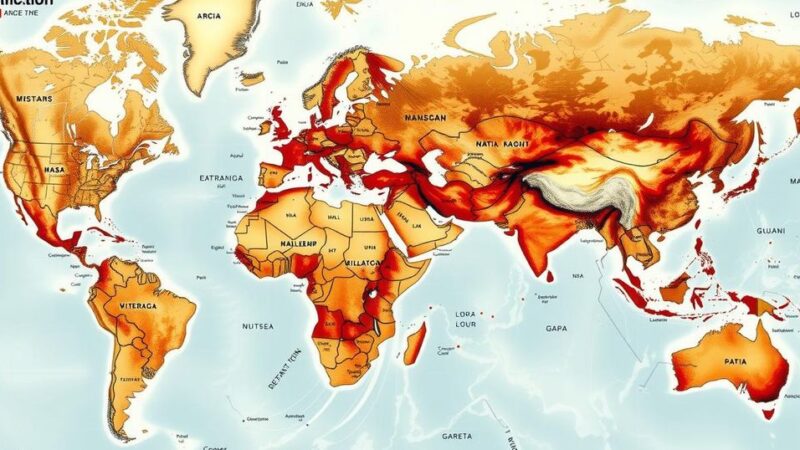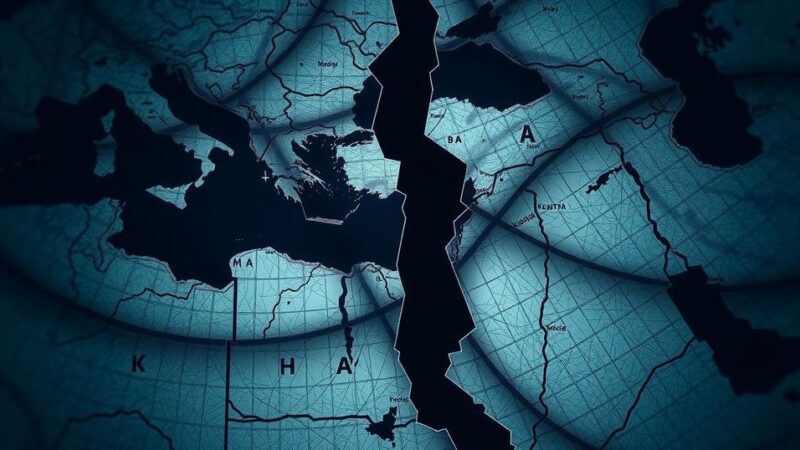Speculation about U.S. Rep. Ilhan Omar’s father, Nur Omar Mohamed, alleges he committed war crimes in Somalia; however, there is no conclusive evidence supporting these claims. Nur, a colonel in the Somali National Army, passed away in 2020. Reports indicate he secured asylum in the U.S. legally and faced no credible allegations. The context of his military career amidst ongoing civil conflicts is explored, emphasizing the need for substantiation of such claims.
For multiple years, speculation has circulated online regarding U.S. Representative Ilhan Omar’s father, Nur Omar Mohamed, and alleged war crimes during his military tenure in Somalia before his immigration to the United States. There is scant detailed information on Nur’s life, as he passed away in 2020 from COVID-19. In her memoir, Omar referred to him as an “educator,” while his obituary described him as a colonel in the Somali National Army, leading a regiment during the Somali-Ethiopian War of 1977-78.
During the authoritarian regime of Mohamed Siad Barre, the Somali National Army committed war crimes against the Issaq clan in the 1980s. While it remains uncertain whether Nur participated in these actions, there is also no conclusive evidence indicating his involvement. In 2019, Snopes reported that Nur secured asylum legally in the U.S., and there were no credible accusations against him concerning wrongdoing during his time in Somalia.
Discrepancies exist regarding Nur’s full name, with some sources referring to him as Nur Said Mohamed Elmi. Research conducted by Snopes utilized both names, yet this article will refer to him as Nur Omar Mohamed. His obituary subsequently noted his military leadership during the Somali-Ethiopian War, which saw Somalia attempting to annex Ethiopian territory inhabited by ethnic Somalis.
Siad Barre’s regime faced significant dissent following the war, leading to coup attempts and the eventual collapse of the government in 1991. Clan affiliations play a vital role in Somali identity, influencing the sociopolitical landscape. In her memoir, Omar asserts that her father hailed from the Majerteen clan, closely affiliated with Siad Barre’s regime before later being persecuted by it.
Omar recounts her father’s choice to live with her mother’s family against societal norms, asserting that it was her maternal grandfather’s lineage from an ethnic minority outside the clan system. His background included a tenure under Siad Barre’s regime, yet during the resulting power vacuum, the family was instructed to conceal their lineage for safety amidst rival clan hostilities.
Subsequent to the Somali-Ethiopian War, the military perpetrated atrocities against civilians, particularly targeting the Issaq clan. As the Barre regime marginalized the Issaq under various repressive actions, the Somali National Movement emerged in response. The regime’s aggression included widespread violence justified under the pretext of combating alleged rebellion.
By the late 1980s, the Issaq had endured extreme dehumanization, culminating in the bombing of cities like Hargeisa. Human Rights reports estimate a death toll exceeding 40,000 as a result of these bombings, which mirrored the state of devastation experienced throughout Somalia. After the regime’s downfall in 1991, Omar’s family sought refuge in Kenya, coinciding with the declaration of Somaliland’s independence.
Currently, there exists a lack of concrete evidence tracing Nur Omar Mohamed’s actions from 1978 to 1991, leaving the allegations of his potential involvement in war crimes speculative at best. His later involvement in Puntland’s security efforts illustrates his intent toward reconstruction, rather than perpetuating violent conflict. In conclusion, without definitive evidence to implicate Nur in war crimes, rumors surrounding his military past remain unsubstantiated and speculative in nature.
In summary, the allegations regarding Nur Omar Mohamed’s involvement in war crimes as a military officer remain unproven. Despite his position in the Somali National Army during a tumultuous period of political strife, there is no verifiable evidence directly linking him to any wrongdoing. Omar’s accounts and various reports highlight the complexities of Somali civil life, clan dynamics, and the pervasive violence of the Barre regime, underscoring the importance of substantiated claims over mere speculation.
Original Source: www.snopes.com






